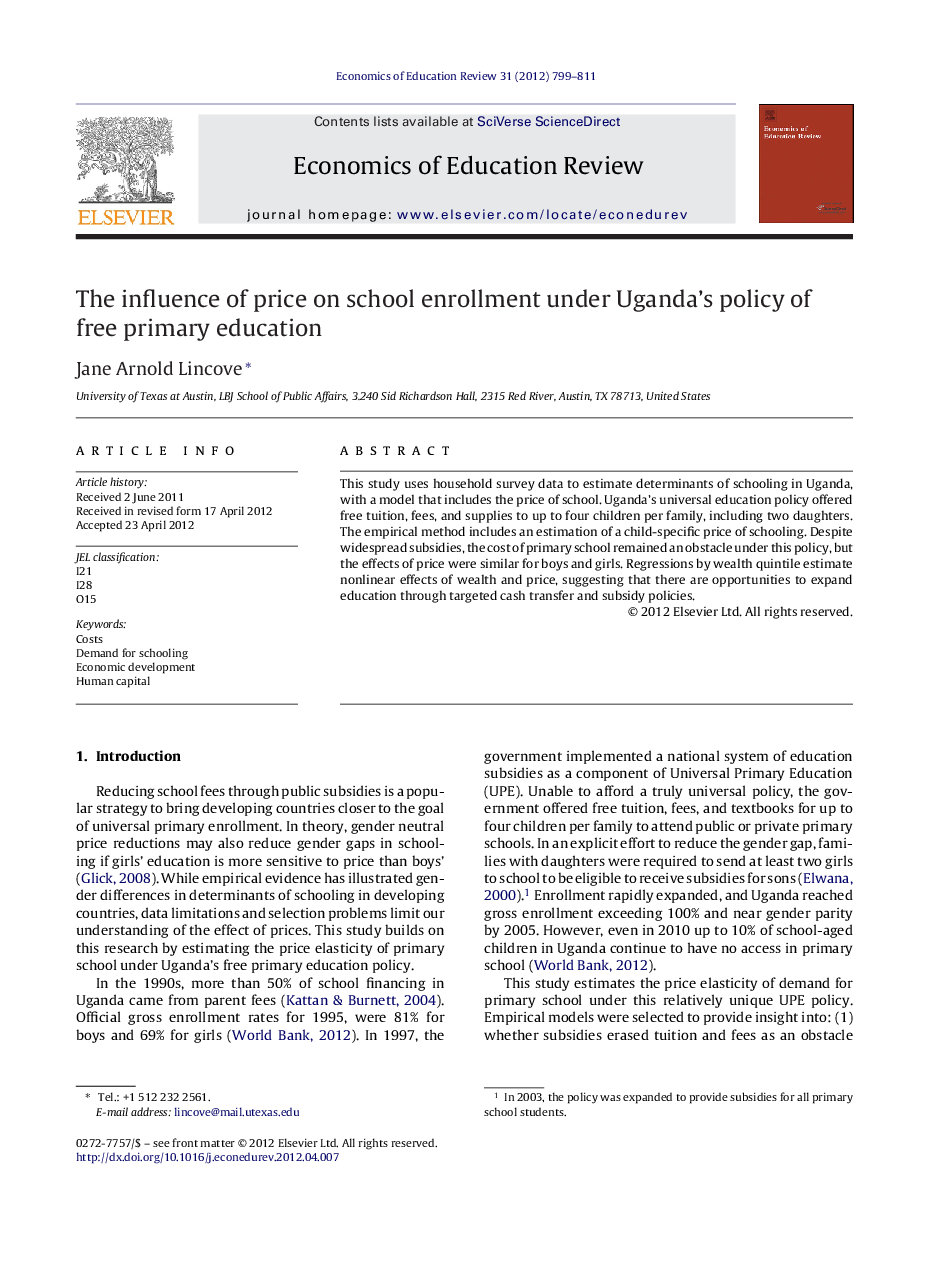| Article ID | Journal | Published Year | Pages | File Type |
|---|---|---|---|---|
| 354445 | Economics of Education Review | 2012 | 13 Pages |
This study uses household survey data to estimate determinants of schooling in Uganda, with a model that includes the price of school. Uganda's universal education policy offered free tuition, fees, and supplies to up to four children per family, including two daughters. The empirical method includes an estimation of a child-specific price of schooling. Despite widespread subsidies, the cost of primary school remained an obstacle under this policy, but the effects of price were similar for boys and girls. Regressions by wealth quintile estimate nonlinear effects of wealth and price, suggesting that there are opportunities to expand education through targeted cash transfer and subsidy policies.
► A structural model estimates obstacles to schooling under a free primary education policy. ► The model includes the shadow price of school. ► Enrollment for boys and girls is influenced by price. ► Price and wealth elasticities of schooling vary by wealth level. ► Policy implications for subsidies and conditional cash transfer are discussed.
